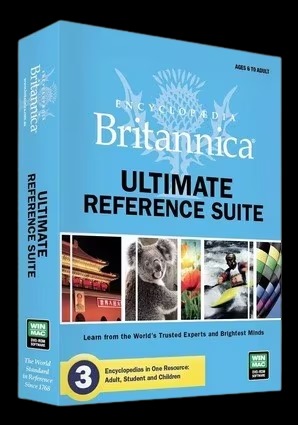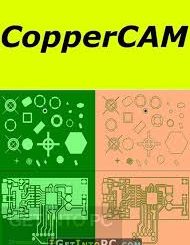Encyclopedia Britannica Ultimate Reference Suite 15.0 Download Smart Software
Download the Encyclopedia Britannica Ultimate Reference Suite 15.0 from this link…
Summary
When I first used the Encyclopedia Britannica Ultimate Reference Suite, I was amazed at how many articles and entries it offered. The DVD came with more than 100,000 pieces of knowledge, from an atlas to files of images, video, and audio, along with a dictionary and thesaurus powered by Merriam-Webster. What stood out to me most was how the encyclopedia balanced being the oldest English-language encyclopedia, first published in Edinburgh, Scotland, in 1768, yet still felt so modern in its design and use. I often relied on it not just for learning, but also for improving readability and appreciating how editors and experts worked on fact-checking and editing to ensure accuracy.
Using this Suite also reminded me of how valuable trusted sources are when you write or research. The Inc. team behind Britannica created something much more than just a set of books; it became a complete media hub that connected traditional scholarship with digital tools. I found the Reference collections especially useful, where both general and detailed knowledge came together seamlessly. From school projects to personal curiosity, I always noticed how carefully it was published, and how Encyclopedia Britannica kept evolving without losing its legacy.
Evolution of Knowledge
When I first explored the Encyclopedia Britannica, I noticed how its history reflected a constant transition. From the first edition in 1768-1771 with treatises, short notes, and cross-references, it grew into major works like the 14th and 15th editions. The volumes and entries were carefully structured, supported by editors, associate specialists, and even 50 contributors who shaped the scope and construction. I found the reprinted and revised versions fascinating, showing how annual updates and continuous fact-checking kept the content alive for readers across generations.
Shift to Digital
By the 1990s, I witnessed how the encyclopedia moved into electronic forms. The CD-ROM products, followed by Online and Internet-based platforms, became part of everyday learning. In 1981, the first digital copy for LexisNexis appeared, and soon after, Britannica.com was launched in 1999. This digital publishing era brought apps, mobile access in 2008, and websites that made it easier for institutions, schools, and even universities to gain access. I personally remember using those platforms for research, where multimedia, video, audio, and photos made studying far more engaging.
Features of the Modern Era
The modern Britannica integrates tools like maps, an atlas, and infographics, while also offering e-books, magazines, and articles. I often found the learning resources very useful, especially the educational features designed for institutions. What impressed me most was how the system encouraged community feedback, where readers could suggest or submit media. Over time, updates became continuous, supported by rigorous standards and reliable fact-checking methods.
Expertise and Contributions
As someone who values credible content, I admire how scholars, prominent voices, and specialists contributed their names and knowledge to entries. The editorial focus remained strong even when sales models and the old printings were disbanded. From products in 1994 to 2006, initiatives like the Blog, every step how the platform adapted while protecting its legacy. I particularly liked the way Merriam-Webster’s dictionary and thesaurus were integrated, making it easier to explore words in context.
Expanding Access
The features of today’s Britannica go beyond simple reading. With sites, apps, browsing options, and enhanced search capabilities, it became more than just an encyclopedia. The system allowed smoother updates and gave space for suggested changes, while institutions benefited from custom-designed platforms. From educational products to community support, the Encyclopedia Britannica shows how developments in digital technology reshaped knowledge-sharing. For me, exploring its world of information always felt like walking into an evolving library where inception met modern innovation.
A Changing Role in Learning
The Encyclopedia Britannica has always fascinated me because of how it connects the oldest traditions of knowledge with modern innovations. Since 1768, this English-language encyclopedia has provided comprehensive coverage of world topics, from statistical tables to cultural summaries. I often admired how its entries were carefully fact-checked, copyedited, and reviewed for accuracy and readability by in-house editors and experts. What made it special was the balance between presenting controversial subjects with fairness and maintaining standards trusted by learners, students, and educators across schools and universities.
Transition Into the Digital Age
By the 1980s and 1990s, I watched how developments in computer and disc technology transformed the publishing world. The company introduced CD-ROM versions, including the Britannica Electronic Index and the Britannica CD, with text, dictionary, and software for quick retrieval. In 1995, a two-disc edition added illustrations, photos, and soon after, in 1997, animations, video, and audio made the experience richer. Although the cost of these early electronic products was high, making sales slow, by 1999, DVDs appeared at lower prices, and digital platforms gained wider access.
Going Online
The rise of the Internet in the 1990s and 2000s pushed Britannica Online into a new era. Under Robert McHenry, editor in chief, the company launched an Internet-based reference service in 1994, where users paid a fee for access to reliable information. I remember trying these platforms myself and appreciating the multimedia features that included maps, databases, and visual storytelling. This shift was not only about publishing but also about creating a balance between traditional print editions and evolving electronic resources.
Editorial Practices and Expertise
What I value most in Britannica is the editorial team’s approach. Both specialized and general articles are written by experts and then carefully revised, fact-checked, and even updated to reflect developments in knowledge. The team works to reconcile viewpoints on controversial matters, ensuring reliability and balance. This process, supported by the proficiencies of contributors, makes the encyclopedia not just a set of works, but a living business of trusted resources that adapts with every new publishing era.
Tools for Learners
From my own study experiences, the tools and databases offered by Britannica have been invaluable. Whether exploring multimedia, maps, or using the dictionary and reference features, I always found the information reliable and easy to use. Online platforms gave learners and educators more interactive resources, while the integration of Merriam-Webster dictionaries, articles, and e-books extended its coverage. For me, this combination of specialized features, updated editions, and electronic platforms made the Encyclopedia Britannica an essential part of my research journey.
Shaping Knowledge Today
Today, the Britannica reflects a balance between print traditions and digital publishing, with broadband and the diffusion of Internet access making it available worldwide. Its platforms serve users across schools, universities, and beyond, offering multimedia resources like audio, video, photos, and animations. For anyone seeking reliable knowledge, whether students, learners, or professionals, the encyclopedia continues to stand as a trusted source. From its founding days to the 2000s, I see it as more than a collection of editions; it is a dynamic publishing system shaped by vetted expertise and constant updates.
If you want to Purchase KeyGen Activator / Cracked Version /License Key
Contact Us on our Telegram ID :
Join Us For Update Telegram Group :
Join Us For Updated WhatsApp group:
Crack Software Policies & Rules:
You Can test through AnyDesk before Buying,
And When You Are Satisfied, Then Buy It.
Lifetime Activation, Unlimited PCs/Users.



